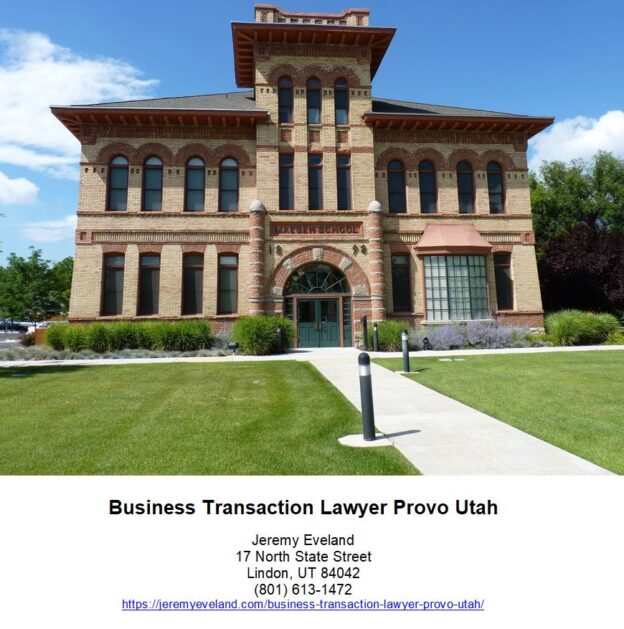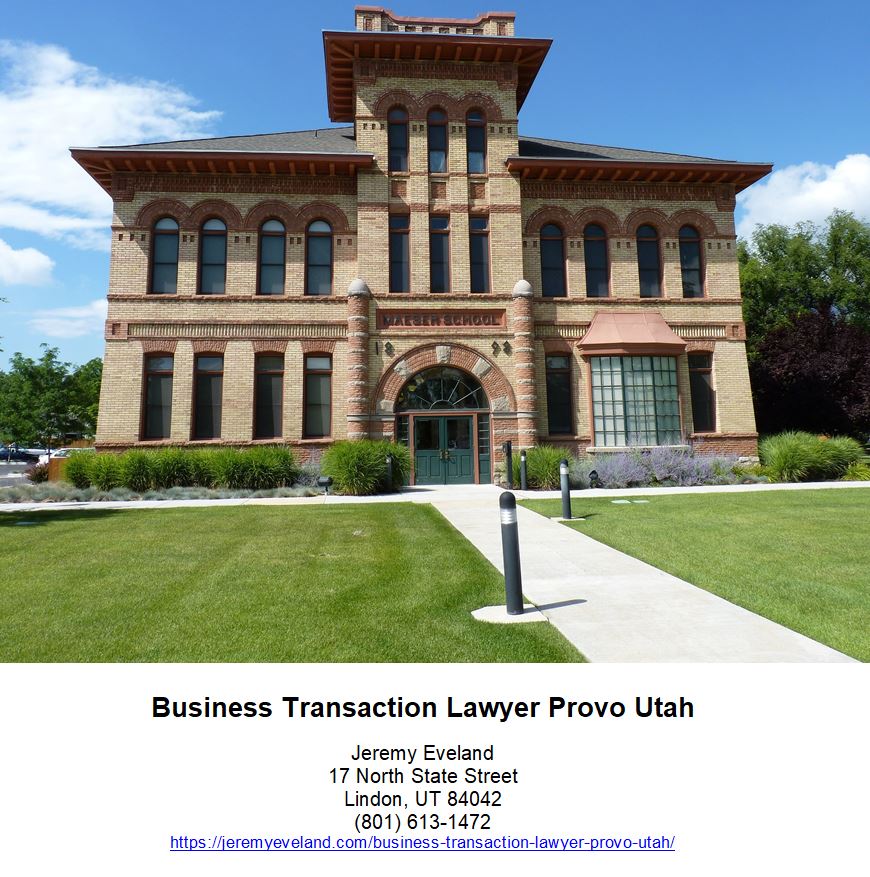Business Lawyer Lindon Utah
Are you tired of navigating the complex world of business law on your own? Look no further! Hiring a business lawyer in Lindon, Utah is an absolute game-changer. With their expertise and guidance, you can conquer any legal challenge that comes your way. From forming contracts to resolving disputes, these professionals have got you covered. So why stress when you can have a trusted advisor by your side? Get ready to take your business to new heights with the help of a skilled business lawyer in Lindon, Utah.
Key Takeaways
- Hiring a business lawyer in Lindon, Utah is important for protecting a company's legal interests and navigating complex business laws and regulations.
- Business lawyers in Lindon, Utah offer key services such as business formation assistance, contract drafting and review, intellectual property protection, and legal representation and guidance.
- To find the right business lawyer in Lindon, Utah, it is crucial to conduct thorough research, look for specialization in business law and relevant experience, seek recommendations, and schedule consultations to assess qualifications.
- Common legal challenges faced by businesses in Lindon, Utah include compliance with local regulations, protection of intellectual property rights, well-drafted contracts, potential fines or closure for non-compliance, and the complexity of intellectual property law.
The Importance of Hiring a Business Lawyer in Lindon, Utah
Hiring a business lawyer in Lindon, Utah is essential for protecting your company's legal interests. When it comes to navigating the complex world of business laws and regulations, having a knowledgeable professional by your side can make all the difference. A business lawyer with expertise in Lindon, Utah understands the local regulations and can help you overcome any legal challenges that may arise.
One of the main reasons why hiring a business lawyer is important is because they have extensive knowledge about the legal landscape specific to Lindon, Utah. They are familiar with the local regulations that govern businesses in this area and can ensure that your company operates within the confines of these laws. By doing so, they help you avoid potential risks and penalties associated with non-compliance.
Moreover, a business lawyer can also provide valuable guidance when it comes to drafting contracts, negotiating deals, and resolving disputes. They have the expertise to review contracts thoroughly and identify any potential pitfalls or hidden clauses that could be detrimental to your company's interests.
Key Services Offered by Business Lawyers in Lindon, Utah
When running a company, you'll find that business lawyers in Lindon, Utah offer a range of essential services to help protect and grow your enterprise. These experienced professionals provide expert legal representation and guidance on various matters that are crucial for the success of your business. Here are some key services offered by business lawyers in Lindon, Utah:
| Services Offered | Description |
|---|---|
| Business Formation | Business lawyers can assist you with choosing the right legal structure for your company, whether it's a sole proprietorship, partnership, LLC, or corporation. They will ensure that all necessary documentation is prepared and filed correctly. |
| Contract Drafting and Review | A business lawyer will help you draft contracts that protect your interests and comply with applicable laws. They will also review contracts presented to you by other parties to identify any potential risks or unfavorable terms. |
| Intellectual Property Protection | If your business relies on intellectual property such as trademarks, copyrights, or patents, a business lawyer can guide you through the process of protecting these assets from infringement and ensuring their proper use. |
By leveraging the expertise of business lawyers in Lindon, Utah, you can navigate complex legal issues confidently while focusing on growing your enterprise. Now let's explore how to find the right business lawyer in Lindon without delay.
(Transition sentence)
How to Find the Right Business Lawyer in Lindon, Utah
By leveraging the expertise of legal professionals in Lindon, Utah, you can easily find the right business attorney to meet your needs. When it comes to finding a business lawyer in Lindon, Utah, there are a few key steps you can take to ensure that you make the right choice. First and foremost, it is important to conduct thorough research on potential attorneys in the area. Look for lawyers who specialize in business law and have experience working with businesses similar to yours. Additionally, consider seeking recommendations from other local businesses or industry associations.
Once you have identified a list of potential candidates, schedule consultations with each attorney to discuss your specific legal needs and assess their qualifications. During these meetings, ask about their experience handling cases similar to yours and inquire about their success rate. It is also crucial to inquire about their fee structure and billing practices upfront so that there are no surprises later on.
Remember that finding the right business lawyer is not just about finding someone who has expertise in the field but also someone who understands your unique needs as a business owner in Lindon, Utah. By taking the time to research and interview potential attorneys thoroughly, you can find the right legal representation for your business.
Moving forward from here, let's delve into some common legal challenges faced by businesses in Lindon, Utah…
Common Legal Challenges Faced by Businesses in Lindon, Utah
To navigate the legal landscape successfully, you must be aware of the common challenges businesses in Lindon, Utah face. As a business owner or entrepreneur in this area, it is crucial to understand the contextually relevant legal considerations and seek guidance from a knowledgeable business lawyer. In Lindon, Utah, businesses often encounter various legal challenges that require careful attention and proactive measures.
One common challenge faced by businesses in Lindon is compliance with local regulations and ordinances. Each city has its own set of rules governing zoning, licensing, permits, and other requirements that must be adhered to. Failure to comply can result in costly fines or even closure of your business.
Another challenge is ensuring proper protection of intellectual property rights. Whether it's trademarks, copyrights, or patents, safeguarding your unique ideas and creations is essential for long-term success. A business lawyer can assist you in navigating the complexities of intellectual property law and help you secure necessary protections.
Additionally, contracts play a vital role in any business operation. From lease agreements to vendor contracts and employment agreements, having well-drafted contracts that protect your interests is critical. A skilled business lawyer can review and negotiate these contracts on your behalf while ensuring they are legally sound.
Understanding these common legal challenges will lay a strong foundation for starting or expanding a business in Lindon, Utah. Transitioning seamlessly into the subsequent section about 'legal considerations' will provide further insights into the key aspects you need to consider when establishing or growing your business without using 'step'.
Legal Considerations for Starting or Expanding a Business in Lindon, Utah
As you start or expand your business in Lindon, Utah, it's important to consider the legal aspects involved and ensure compliance with local regulations and ordinances. One of the first steps you should take is consulting with a knowledgeable business lawyer who can guide you through the legal considerations specific to starting or expanding a business in Lindon.
A business lawyer can assist you in understanding the various legal requirements and obligations that come with establishing or growing your business. They can help ensure that you comply with state and local laws regarding permits, licenses, zoning regulations, tax obligations, employment laws, intellectual property rights, contracts, and more.
Additionally, a business lawyer can review and draft contracts for your company to protect your interests and minimize potential legal risks. They can also provide advice on how to navigate any disputes or litigation that may arise during the course of your business operations.
Frequently Asked Questions
What Are the Typical Fees and Payment Structures for Business Lawyers in Lindon, Utah?
When hiring a business lawyer in Lindon, Utah, it is essential to understand the typical fees and payment structures. They vary depending on the complexity of your case and can include hourly rates, flat fees, or contingency arrangements.
Are There Any Specific Industries or Types of Businesses That Business Lawyers in Lindon, Utah Specialize In?
In Lindon, Utah, business lawyers often specialize in specific industries or types of businesses. They have expertise and experience in areas such as healthcare, technology, finance, real estate, and more.
Can a Business Lawyer in Lindon, Utah Assist With Contract Drafting and Negotiation?
Yes, a business lawyer in Lindon, Utah can assist you with contract drafting and negotiation. They have the expertise to ensure your contracts are legally sound and protect your interests.
What Steps Can a Business Lawyer in Lindon, Utah Take to Protect Intellectual Property Rights?
To protect your intellectual property rights, a business lawyer can take steps such as conducting thorough research to identify existing patents or trademarks, drafting and filing necessary applications, and providing guidance on enforcement strategies.
How Can a Business Lawyer in Lindon, Utah Help With Resolving Disputes or Litigation Involving Other Businesses or Individuals?
A business lawyer can assist you in resolving disputes or litigation involving other businesses or individuals. They provide legal advice, negotiate settlements, and represent your interests in court to help find a resolution that best suits your needs.
Areas We Serve
We serve individuals and businesses in the following locations:
Salt Lake City Utah
West Valley City Utah
Provo Utah
West Jordan Utah
Orem Utah
Sandy Utah
Ogden Utah
St. George Utah
Layton Utah
South Jordan Utah
Lehi Utah
Millcreek Utah
Taylorsville Utah
Logan Utah
Murray Utah
Draper Utah
Bountiful Utah
Riverton Utah
Herriman Utah
Spanish Fork Utah
Roy Utah
Pleasant Grove Utah
Kearns Utah
Tooele Utah
Cottonwood Heights Utah
Midvale Utah
Springville Utah
Eagle Mountain Utah
Cedar City Utah
Kaysville Utah
Clearfield Utah
Holladay Utah
American Fork Utah
Syracuse Utah
Saratoga Springs Utah
Magna Utah
Washington Utah
South Salt Lake Utah
Farmington Utah
Clinton Utah
North Salt Lake Utah
Payson Utah
North Ogden Utah
Brigham City Utah
Highland Utah
Centerville Utah
Hurricane Utah
South Ogden Utah
Heber Utah
West Haven Utah
Bluffdale Utah
Santaquin Utah
Smithfield Utah
Woods Cross Utah
Grantsville Utah
Lindon Utah
North Logan Utah
West Point Utah
Vernal Utah
Alpine Utah
Cedar Hills Utah
Pleasant View Utah
Mapleton Utah
Stansbury Par Utah
Washington Terrace Utah
Riverdale Utah
Hooper Utah
Tremonton Utah
Ivins Utah
Park City Utah
Price Utah
Hyrum Utah
Summit Park Utah
Salem Utah
Richfield Utah
Santa Clara Utah
Providence Utah
South Weber Utah
Vineyard Utah
Ephraim Utah
Roosevelt Utah
Farr West Utah
Plain City Utah
Nibley Utah
Enoch Utah
Harrisville Utah
Snyderville Utah
Fruit Heights Utah
Nephi Utah
White City Utah
West Bountiful Utah
Sunset Utah
Moab Utah
Midway Utah
Perry Utah
Kanab Utah
Hyde Park Utah
Silver Summit Utah
La Verkin Utah
Morgan Utah
Lindon Utah Lawyer Consultation
When you need help from an attorney who can help with business law in Lindon, call Jeremy D. Eveland, MBA, JD (801) 613-1472 for a consultation.
Jeremy Eveland
17 North State Street
Lindon UT 84042
(801) 613-1472
Related Posts
Business Lawyer North Salt Lake Utah
Product Liability Laws in Utah
Preventing Cybersecurity Breaches
Business Lawyer North Ogden Utah
Business Lawyer Brigham City Utah
Mastering Business Law: Key Essentials For Success
Business Lawyer Centerville Utah
Shareholder Agreements in Utah
Business Lawyer Hurricane Utah
Business Lawyer South Ogden Utah
Last Will and Testament Lawyer
Business Lawyer Heber City Utah
Business Lawyer Hurricane Utah
Business Lawyer West Haven Utah
Do I Need A License To Start A Business?
Business Lawyer Bluffdale Utah
Business Lawyer Santaquin Utah
Legal Implications of Cryptocurrency in Business Transactions
Business Lawyer Smithfield Utah
Structuring A Flow Through Entity
Business Lawyer Woods Cross Utah



























